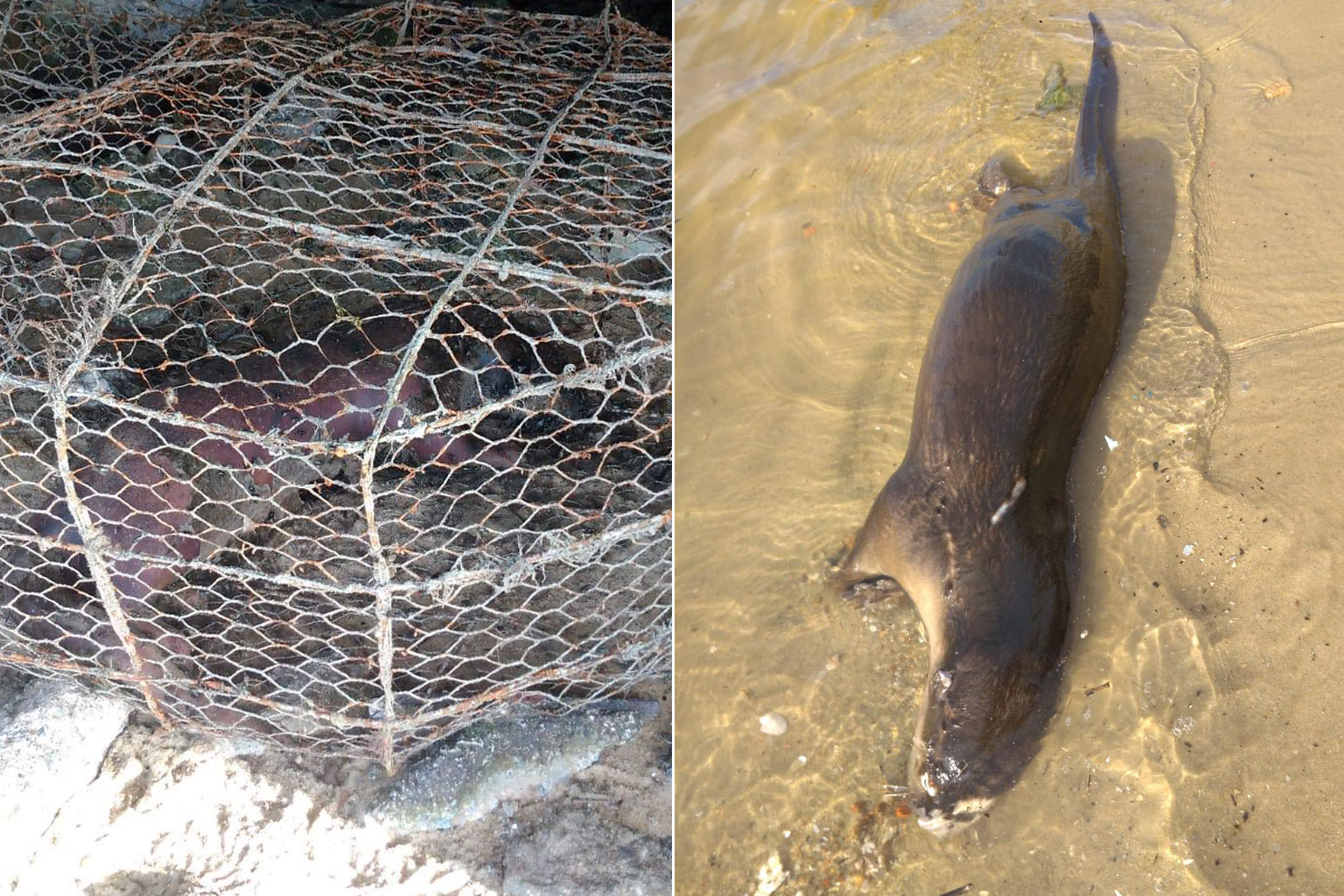2 otters found dead near Changi Sailing Club, including 1 trapped in illegal fishing cage
Sign up now: Get ST's newsletters delivered to your inbox

One otter was found trapped in an illegal fishing cage, and the other was seen on the beach near the cage.
PHOTOS: FACEBOOK/OTTERWATCH
SINGAPORE - Two otters believed to be from the Pasir Ris family were found dead near the Changi Sailing Club.
While one was found trapped in an illegal fishing cage, the other was seen on the beach near the cage.
A member of the public who found the otters on Wednesday alerted Facebook page OtterWatch on Thursday (April 26) morning.
Photos shared by OtterWatch show one of the otters covered in mud in a large metal cage under a boardwalk, while the other had been washed up on the beach.
Avid otter watcher Jeffrey Teo, who is part of OtterWatch, told The Straits Times that the otter found in the cage was "in a bad shape".
It had metal cuts on its face and a monitor lizard was seen chewing on its body, he said, adding that the carcass will be handed over to the Wildlife Reserves Singapore for a post-mortem.
However, the carcass of the other otter which was found on the beach near the cage, was no longer there by the time volunteers went down.
National University of Singapore biology lecturer N. Sivasothi, who heads the Otter Working Group, told ST that the otters were likely from the Pasir Ris family, comprising 10 adults and four pups.
The family usually roam the waters in Pasir Ris and Changi, and in November last year, made a surprising appearance on the tarmac of Changi Airport.
Mr Sivasothi said that the otters, just like other wild animals, could have been in search of food, when they became trapped.
"Any wild animal will explore their surroundings in great detail in pursuit of food," he said.
"While otters are usually suspicious of new structures and are careful around them, there could be a possibility that the cage has been there for quite a while, and they have become familiar enough with it to explore it."
He added that if fish was used as bait in the cage, then this may have driven the otters to enter it and get caught, before drowning.
With Singapore's waterways now relatively clear of pollution, wildlife has started to make a return in recent years, he noted.
Hence, there is a greater urgency to eradicate illegal fishing practices that could have a significant detrimental effect on wild animals, he said.
Currently, the public is able to alert national water agency PUB on suspicious activities in Singapore's reservoirs.
But in other areas, it is often the public who remove illegal traps, cages or fishing lines on their own initiative.
In June last year, a dead otter from the Bishan family was found in a cage at Marina Promenade in the Kallang Basin. A man was caught setting up traps in the area later that day.
And in January, otters were spotted climbing an illegal fish-trapping cage in the Marina Reservoir. An otter watcher alerted PUB, which removed the cage with the help of otter community group OtterWatch.
It is illegal to use such trapping cages in any reservoirs or waterways, even in areas where fishing is allowed.
Additionally, those caught trapping any animal or doing any act which injures fauna in any reservoir may be fined up to $3,000.


